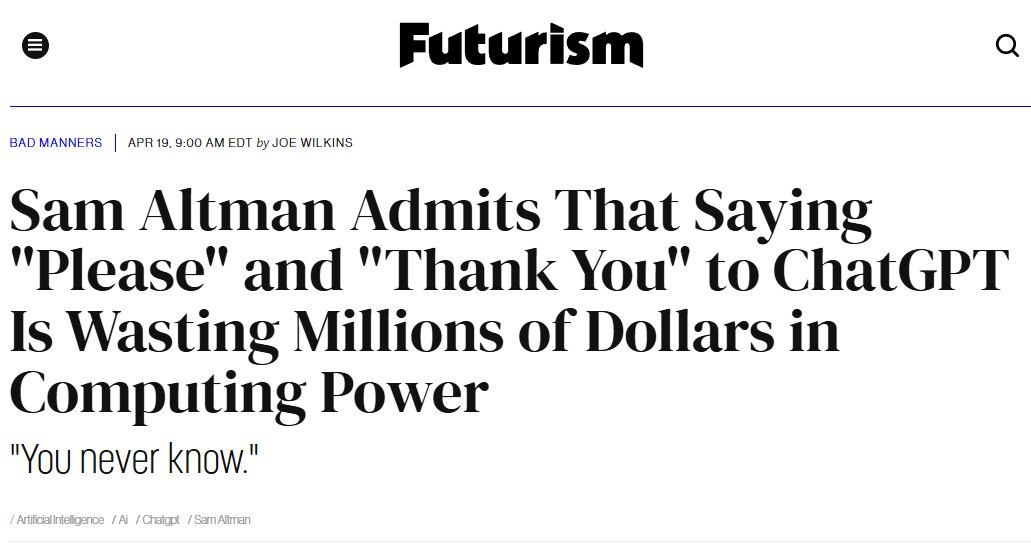In a highly educated and well-funded taxpayer-supported effort, scientists in the UK have struck upon a new way to breathe life into the slowly dying theory that the earth is slowly dying.
The earth remains in a death spiral of rising temperatures and most life is soon to be extinct without direct action now, so the assertion goes. The major culprit of heat is, of course, the sun. (And here all this time I thought it was carbon dioxide generated by my V-8 Suburban, but I now stand corrected.)
Just as we draw the shades when the afternoon sun bears down, so this group of intrepid researchers will dim the sun by sewing the heavens with artificial shades made of sulfate, particalized as an aerosol. If you launch enough jet airplanes with enough spray nozzles and enough sulfate, you can form an airborne haze that will act as a natural — or rather, an unnatural — cloud cover.
Voila! The earth suddenly gets cooler! One source on the UK team even said that less sunlight would be better for agriculture; it would save crops from heat stress.
The article does not go into detail over what sulfate actually is. Through pain-staking research requiring upwards of 20 seconds, this writer was able to learn from WebMD that sulfate is a form of manmade salt. It spins off from industrial waste, and like approximately 100 percent of everything else manufactured, it comes from petroleum.
Sulfate is what makes soap soapy. Sulfate creates a surfactant that binds to oil, fat and dirt, removing them from whatever you might be washing.
In large doses — perhaps doses such as might be required to dim the sun over something the size of, say, a continent — it will also bring on respiratory irritation and skin inflammation. Of course it will: The human body requires a certain degree of oil in the skin to prevent things like eczema. A surfactant — like shampoo — removes the oil.
Scientists cited in this article bemoan the fact that their efforts to stem the tide of rising temperatures shown by models has been hampered by — wait for it — a lack of actual data. Here is a direct quote from a project manager at the UK’s Advanced Research and Invention Agency (ARIA): “A critical missing part of our understanding [of how to combat climate change] was real-world, physical data.”
In other words, we don’t have any factual basis for predicting what will work, so we’re going to try a fleet of airliners to spray clouds of laundry detergent into the sky.
I worked for a boss one time who criticized a solution I was working on: “You can assume, Ghormley, that if nothing else works, this won’t either.”
An argument against the ARIA effort appeared as an opinion piece in The Guardian a month ago. There, a scientist from University of Pennsylvania called the proposal “barking mad.”
At least the ARIA team is following through on a time-honored approach: Having lost sight of our objective, we will now redouble our efforts.
Number 3. the Telegraph. T-Rex leather handbags could be made using fossil DNA.
On the heels of the news about the genetic resurrection of the Game of Thrones dire wolf, a subject of the ANR last month, comes welcome news for the accessory apparel industry.
Paleobiologists, who apparently study dead things, discovered a tiny fragment of DNA in a dinosaur fossil said to be 80 million years old. From such a humble beginning, something called The Organoid Company was able to build a DNA sequence that will replicate the hide of a Tyrannosaurus Rex.
Teaming up with another commercial outfit, Lab-Grown Leather, T-Rex handbags will soon be on the scene.
Collagen, a natural substance derived from animal skin, can be cultured into a means of growing what amounts to artificial leather. In this case, the collagen genes are suffused with the T-Rex DNA to produce a leather-like material that can be said to have some vague relationship to the dinosaur, and, importantly, can be advertised as “cruelty-free.”
The new laboratory development will be turned into stylish handbags for the avantgarde dinosaur aficionado. It is said that T-Rex leatherette upholstery for your new car will not be far behind.
There is plenty of criticism of the new product, mostly by those who already use real leather in the fashion business, but I have no doubt that dinosaur leather will be a thing. I could see it in jackets, skirts, boots and laptop covers. A company like the real T.REX ARMS — specializing in handgun holsters for the gun nut crowd — is an obvious candidate.
What’s old is new. As soon as we clone an actual T-Rex, I can visualize the movie trailer: A crazed Tyrannosaurus Rex hunting down the fashionistas wearing the skin of his ancestors.
We have all heard by now that artificial intelligence is an energy hog, leading to projects like the renovation of the Three Mile Island nuclear plant in order to power Microsoft’s data centers.
Now we are learning just how much our polite conversational interactions with our AI interfaces actually costs.
Everything that is communicated to an AI agent — every line you type or speak — must be processed by the application, which then must come up with a response. How that magic happens is a mystery to us mere mortals, but it involves a great deal of research on the part of the app to
a) understand what has been said,
b) search for appropriate responses,
c) present the response and
d) assess the result by means of studying the follow-on interaction.
All this must happen very quickly, or the subscriber will lose interest and go back to his aimless web surfing.
Thus, when you ask something innocuous like “What should I wear today?” and the bot replies with something equally vacuous like “Think about weather, occasion, comfort, mood and cleanliness,” and then I say “Thank you,” it must offer a response.
In the case of ChatGPT, which I just now engaged for this very illustration, Chat’s answer was “You're welcome! Let me know if you want help checking the weather or putting together an outfit for a specific event. What are you up to today?”
I know… sickeningly sweet.
But my totally unnecessary and polite “thank you,” demanded by force of habit, and by the stern admonitions of my mother, required Chat to form its own response.
According to Sam Altman, billionaire CEO of Open AI, the “please” and “thank you” routine costs "tens of millions of dollars” in electricity.
This is not a waste, however, according to a spokesperson for Microsoft. Proper etiquette creates an atmosphere of mutual respect and collaboration. Without such an atmosphere, users might switch to a more genteel and well-mannered bot — offered by a competitor.
Interestingly, a small percentage of humans surveyed (12%) thought it important to engender a relationship of politeness with their AI bot, to avoid being targeted in the inevitable AI uprising.
Whatever.
The juggernaut that is artificial intelligence reminds me vaguely of how the Union and the Confederacy stumbled into civil war in 1861. Neither side wanted it, both were shocked at the rapidity and scale of the escalation, and everyone was powerless to stop it.
On a dark side, this AI business has the feel of a Tower of Babel construction project. That did not work out so well.
I think I’ll adopt a pleasant, non-threatening tone and ask ChatGPT what I should think about this.
In one of the many substack posts that drifted across my screen this week, I came across a comment that President Trump’s tariff war mirrors thoughts recorded by the American Founders in the late 18th century.
Granted, that was then, and this is now, but it prompted me to spend my Sunday morning pre-church coffee time in The Federalist Papers. A little light reading.
Alexander Hamilton sounds exactly like Donald Trump’s press releases, except a little more ivory tower and a little less street lingo.
Hamilton: “By [the use of tariffs], extending… throughout the States, we may oblige foreign countries to bid against each other, for the privileges of our markets.” (Federalist 11)
Hamilton builds on this to show the need for both a federal government and a federal Navy. All the commerce the 13 colonies enjoyed came across the Atlantic Ocean and arrived at certain ports. If Savannah, for example, allowed British products to come in without import duties, while New York charged a duty, Georgia would become wealthy to the exclusion of New England.
If on the other hand, every port in the colonies had consistent import tariffs in place, the wealth of all would grow proportionately. Imposition of tariffs would require a Navy.
A finer point is put on his argument in Federalist 12 with regard to what he calls “ardent spirits.” For us modern clods who don’t speak the King’s English, that means liquor.
Hamilton pointed out that 3 million colonists drank 4 million gallons of hooch each year. A small levy on the importation of these spirits would contribute significantly to federal revenue. If, he went on, such a tariff reduced the demand for the imports, that would be good news for domestic farmers to produce a competing product.
Also, if the import tariff reduced consumption overall, that would contribute to “the morals and the health of the society.”
Hamilton is also quick to note that excessive tariffs will lead to declining revenues, as people will simply quit buying the product. There is a happy medium where tariffs can pay for government operations, stimulate trade, and make all sorts of goods available.
Having read some of this, I conclude: What America needs now is someone who understands international trade imbalances, who is willing to call out domestic government waste and who recognizes the enormous leverage offered by American purchasing power. If that person is also a shrewd deal-maker, we may have the makings of a new era of American prosperity.
I wonder where we could find one of those?
The sort of prosperity this portends, by the way, is not limited to Americans. For international trade to work well, everyone must benefit. Unfortunately, it also does not limit short-term economic disruption.
The U.S. economy contracted by 3-tenths of a percent in the first quarter of this year. Not a crisis, but also not particularly happy. Reuters reports that China has now cancelled 30% of the cargo shipments leaving their ports, which were mostly headed for Walmart. That will most certainly be felt on the receiving end by dockworkers and truck drivers and retail sales help in our own country.
No pain, no gain. Erasing a $37 trillion national debt will not be pain free. But then, neither will funding the payments on it in perpetuity.
And if you are slightly interested in The Federalist Papers but suspect it will be a tough slog, try the Cliff’s Notes Version online. Take it in small bites. Imagine how your friends will react at the next backyard barbecue — where you may serve hot dogs rather than steaks — when you start quoting James Madison.
Thanks for joining The Alligator News Roundup for Friday May 2, 2025. The year is slipping past with alarming rapidity. Do something special for your Mom this week, like, for example, buying her a year’s subscription to the ANR.
Or maybe that would be something special for me, with your Mom as merely a happy coincidence. On the other hand, you could TELL her the paid annual subscription is 50 bucks, which it is. and then you could ACTUALLY sign her up at the free level, which you really could do (you cheapskate).
She would never know the difference.
Unless someone told her in the welcome email.
Have a good weekend!





















Share this post